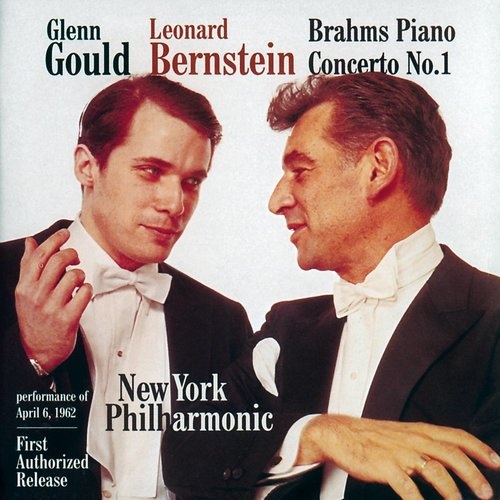| [00:00.000] |
作词 : Spoken Word |
| [00:00.000] |
作曲 : Spoken Word |
| [00:00.01] |
There is one subject that has interested me, Gleen Gould, in connection with you for a long time especially last year, |
| [00:07.12] |
when the...eh...when you played d minor Brahms with Leonard Bernstein. |
| [00:11.04] |
And there is a...eh...people were record Bernstein made a speech before the audience, |
| [00:18.38] |
saying that his conception and your conception collided more or less and he wanted to... |
| [00:23.65] |
well I wouldn't say disassociate himself |
| [00:26.93] |
Now it has interested me to find a explanation, |
| [00:31.63] |
in what way two musicians, two artists of the caliber of you and of Mr. Bernstein |
| [00:39.13] |
can approach a standard symphonic work like the d minor Brahms concerto |
| [00:45.57] |
and have such diverse conceptions of the piece |
| [00:49.29] |
that Bernstein in this case felt that he had to disassociate himself from... |
| [00:53.35] |
I don't know that there's a satisfactory explanation. As far as what actually transpired last year, |
| [00:58.57] |
I seemed to be the only person around who felt that Mr. Bernstein's speech was full of the best of good spirits, and great charm, |
| [01:07.71] |
and I in fact I sat backstage giggling before playing the thing. I could hardly stop it when we started. |
| [01:13.60] |
I thought it was delightful. |
| [01:15.62] |
But there is no solution to this sense of collaboration that's demanded by a concerto. |
| [01:21.69] |
Part of the concerto idea is of course the sense of non-collaboration, |
| [01:25.92] |
the sense of willingness of the virtuoso, so called, to show off. |
| [01:32.47] |
And I think it's this, it's the traditions that emanate out of that that prompted me to do what I did |
| [01:38.98] |
because what went on last year was in no way a particularly unusual performance of that particular Brahms concerto |
| [01:45.97] |
except for one factor, and that was that our proportions of tempi |
| [01:51.14] |
and our proportions of dynamics tended to be scaled closer together than is usually the case |
| [01:55.27] |
There was less, if I say exaggeration, I don't mean it critically of other people's performances, |
| [01:59.97] |
but there was less exaggeration in that sense of the word, |
| [02:02.71] |
there was less divergence between what could be called the masculine-feminine approach of the piano concerto between first theme and second theme, ( |
| [02:09.94] |
between the barking of the orchestra and the placidity of the piano. |
| [02:13.51] |
It was a much more tightly welded unit, what I wanted to do. |
| [02:17.84] |
Now, Lenny felt that in order to preserve the antagonism of orchestra for piano |
| [02:24.10] |
there ought to be greater contrast, there ought to be larger dynamic spans and greater changes of tempi |
| [02:29.66] |
and I was at that time, and still am, I must say, |
| [02:33.81] |
in a Baroquish mood as far as even the nineteenth century concerto is concerned. |
| [02:39.64] |
I was trying to bring a common pulse to the movements and to hold things together in that |
| [02:44.01] |
if rather arbitrary, nevertheless for me very convincing way. |
| [02:47.60] |
And this is what happened it was simply the meeting at two points of our particular metamorphosis |
| [02:56.11] |
at which he was more in favor of the tradition which has accrued around the concerto style |
| [03:01.81] |
and I wished at that moment to break with it. |
| [03:04.84] |
You say at that moment? |
| [03:05.98] |
I may change, I only imply that I |
| [03:08.08] |
No, have you always felt that way? |
| [03:09.53] |
About that particular piece I have. |
| [03:11.39] |
I have not applied quite as extreme an analysis to other works of the same genre, |
| [03:16.11] |
but I have about that particular work. |
| [03:19.08] |
And... so I was very grateful for the chance to do this for the chance to exhibit it nationally, |
| [03:23.83] |
so to speak, on the radio, and I was very grateful to Mr. Bernstein for going along with this, |
| [03:28.21] |
I've only write that he should get off the hook himself. |
| [03:31.63] |
Right. I want to come and hear you play in the 1970s see what happened. |
| [03:35.73] |
Great I hope you can. |
| [03:36.60] |
We've talked long time and I've enjoyed it very much. I hope you come again. |
| [03:40.46] |
I will indeed. |
| [03:41.43] |
Thank you, thank you Gleen Gould. |
